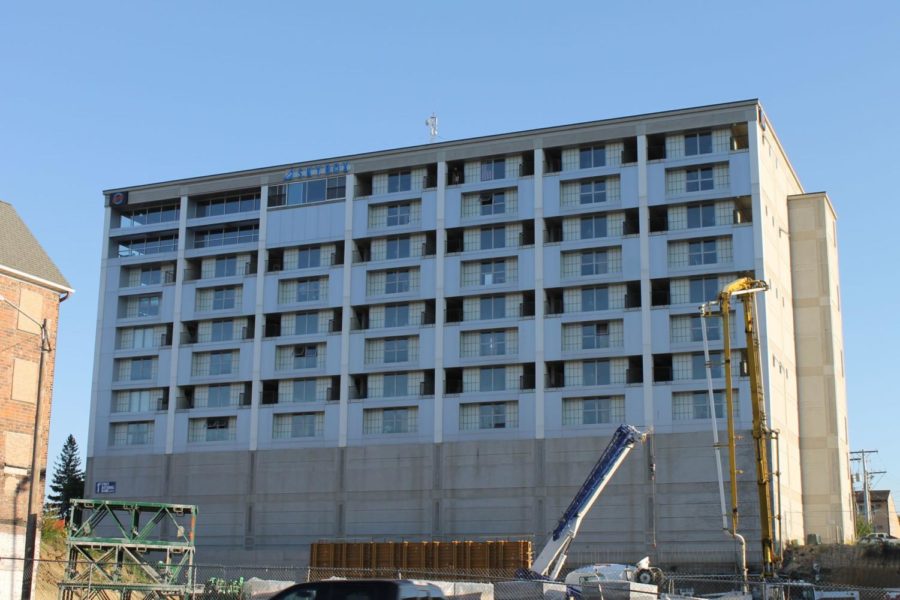Woods: Tenants must talk to owners
Tenant-landlord relationships can either be good or begin to fall down a slippery slope when it comes to repairs and other concerns.
September 19, 2014
Tenants have legal rights to which they are entitled when it comes to living in apartments. Landlords have a responsibility to their tenants to make sure that they live in a clean and safe environment, such as a mold-free living space and functioning air conditioners and windows.
But it is also important to realize that the tenant has a responsibility to the landlord to immediately contact him or her after an issue occurs or is discovered. From personal experience, I have found that some forms of communication are more effective than others.
Sending emails has its advantages and disadvantages. Emails are a great way to keep records of correspondence between landlord and tenant, especially if a legal issue surfaces. A downside to using emails is that they may not be noticed or answered in a timely matter, but it all depends on both parties.
The possibilities of drawing immediate attention to issues are higher through phone communication, but there isn’t always a record of what was said between parties and there is a chance that your call will go to voicemail more often than you would like.
Before a tenant is even able to move in, a rental agreement is drawn up and signed by both parties involved. In the agreement everything should be laid out clearly for the tenant to understand.
The rental agreement contains information regarding for what the landlord and tenant are responsible and of what the tenant should be aware while the apartment is leased.
You will most likely see a clause for the term of the tenancy, or length of the rental, in a rental agreement. Agreements should state the amount of rent due each month and when the rent is due to the landlord.
There are other general clauses that the agreement should mention to the tenant, like the condition of the rental unit. The landlord must “make all repairs and do whatever is necessary to put and keep the premises in a fit and habitable condition; keep all common areas of the premises in a clean and safe condition; maintain in good and safe working order and condition all electrical, plumbing, sanitary, heating, ventilating, air-conditioning and other facilities and appliances, including elevators, supplied or required to be supplied by the landlord,” according the U.S. Department of Housing and Urban Development.
There are more than 30 property managers to choose from that have off-campus apartments, according to ISU Department of Residence’s website. These apartments are not managed by the university. The apartments that are managed by Iowa State are Legacy, Frederiksen Court, Maricopa-Walton, Schilletter and University Village apartments.
People living in these apartments were given a survey to fill out in February to give the housing department an idea of how the tenants’ living experience was. A similar survey was given out to residents living in apartments not managed by the Ames Rental Association.
It was the Government of the Student Body that headed the survey up. According to an article published by the Daily, GSB wished to partner with the Ames Rental Association to better understand the living conditions tenants deal with in these apartments.
There is potential for progress to be made in improving tenants’ living situation in Ames, especially if surveys are given out to tenants more frequently. Problems with apartments such as mold and broken windows cannot be addressed if no one is made aware of the situation.
By the use of continuous communication between tenant and landlord and the completion of annual or biannual surveys, issues will be addressed and the living experience will be better for all.







